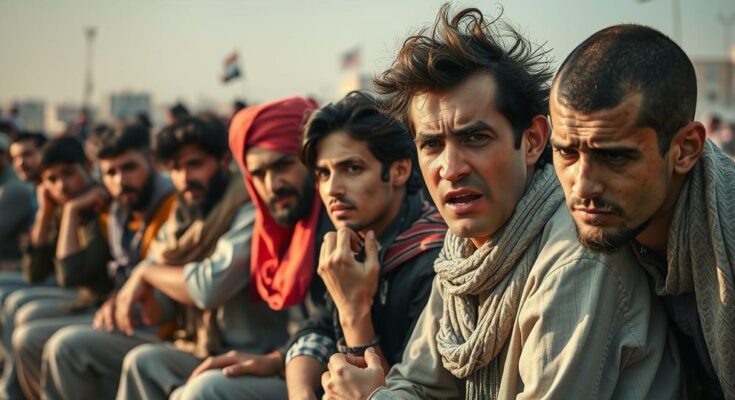Violent jihadists in Syria are increasingly frustrated with the changing cultural landscape under new leader Ahmed al-Sharaa, who has reversed orders that threaten the presence of female artists and modern expressions, showcasing a conflict between traditional values and evolving societal norms in Syria.
Violent jihadists in Syria are expressing discontent with the evolving societal norms and governance under the new leadership of Ahmed al-Sharaa, the current de facto leader of the old city of Damascus. Following his recent decision to seize a historic Ottoman palace embracing an arthouse culture, al-Sharaa rescinded his initial directive after realizing it would not align with the stringent moral standards he enforces. The palace had been home to female artists whose free expression and nocturnal gatherings were deemed improper, prompting him to dispatch armed jihadists to expel them and confiscate their materials before the New Year.
This incident underscores a larger struggle within Syria, where violent jihadists find their traditional values increasingly challenged by a society embracing modernity and a more liberal ethos. The introduction of Christmas decorations, promotion of women’s rights, and public celebrations are seen as offensive to the jihadist perspective, leading to heightened frustration among these groups. Moreover, this changing landscape poses a threat to their influence and establishes a stark conflict between the ideologies of the past and the contemporary direction of Syrian society.
The conflict in Syria has transformed dramatically over the years, leading to a complex interplay between various factions, including violent jihadists, secular groups, and representatives of the Assad regime. Ahmed al-Sharaa’s appointment as the leader of the old city of Damascus signifies a potential shift towards more liberal and diverse cultural expressions, contrasting sharply with the hardline views held by jihadist groups. The presence of female artists and their efforts to challenge traditional norms indicates a burgeoning cultural scene that is at odds with jihadist ideologies that prioritize strict adherence to conservative interpretations of Islam and advocate for a strict moral code. Understanding these dynamics is crucial to comprehending the challenges faced by jihadists in an evolving Syrian society.
In conclusion, the recent actions and sentiments expressed by violent jihadists in Syria reflect a significant clash between rigid ideological perspectives and a transformative societal environment. The leadership of Ahmed al-Sharaa seeks to foster a more liberal atmosphere, which is met with resistance from jihadists who feel threatened by this shift. As Syria continues to navigate this landscape, the tension between these divergent views will likely shape the future of the region.
Original Source: www.economist.com




